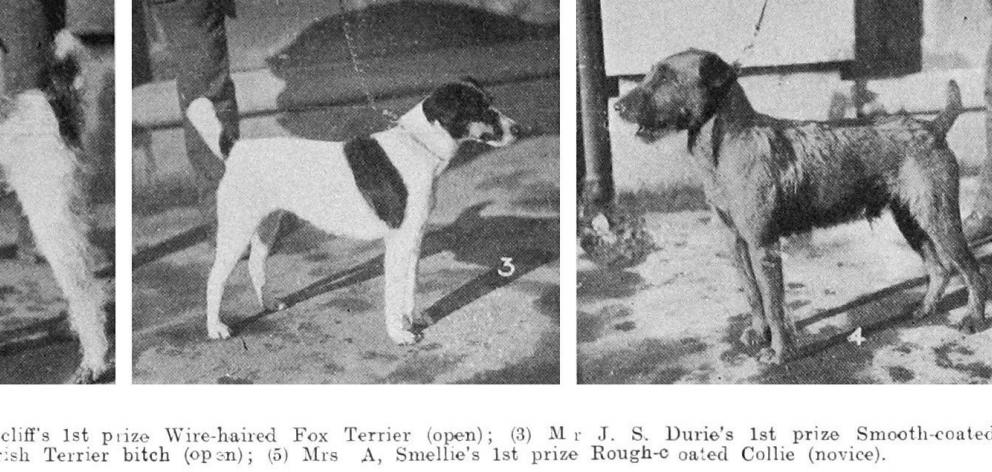
The New Zealand Kennel Club, moreover, had granted the club championship in all breeds of dogs.
Entries had been received from Canterbury and Southland, and these, with the local entries, made a very fine total — in all, over 1200 exhibits beingstaged. The show would have been even more successful but for the fact that the North Island exhibitors were under the impression that Mr Crabtree was to judge at the Wellington Club's show.
Mr Crabtree, however, has come out to New Zealand under engagement to the Dunedin Fanciers’ Club, and if the Wellington club does obtain his services it will have to be by arrangement with the Dunedin Club.
Deputation seeks railway relief works
A huge deputation waited on Hon D. H. Guthrie yesterday morning to urge the taking in hand of the deviation and straightening of the railway from Ravensbourne along the foreshore up to Dunedin, in order to provide work for unemployed married men. The deputation must have numbered well on to 100 people, representing the City Council, Harbour Board, all the immediate local bodies and prominent business and manufacturing interests.
The arrangements were made by the Otago Expansion League. Mr C.E. Statham MP, who introduced the deputation, said that the position it desired to place before the Minister was that of the prosecution of the deviation of the railway line between Dunedin and Ravensbourne. The work would be of lasting utility to the Railway Department, and would be of great benefit to the City of Dunedin, while it would give employment to married men with families. The Minister would agree that men out of work were a dead loss to the State. No one wanted to see men out of work, and if they could give them useful work to do it would be advantageous to the State. Several speakers presented various arguments in support of the proposition. In reply, Mr Guthrie said the various Government Departments were doing what they could to absorb men, and their great aim was to relieve unemployment, and so long as there was a use for every man for the benefit of the community they would continue to do so.
He quite recognised that married men should be kept as near their homes as possible, and he could promise definitely that as far as possible that would be done. He would go into the matter with the district engineer in view of the representations of the deputation; that it was a necessary work and he would also consult the general manager of the railways on his return to Wellington. He pointed out there was ample room for improvements in all the cities of New Zealand, and some of the works were very urgent. The deputation had been quite right in what it had said, but the Government had to hold the balance with an equal poise as between such demands.
— ODT, 1.7.1921.












